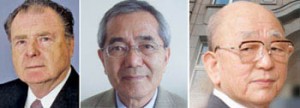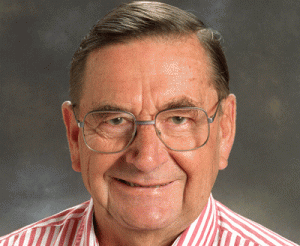
Professor Athel Beckwith who inspired a generation of free radical chemists
View the Free Radical Chemistry web themed issue
It was a stunned international chemistry community that learnt of the tragic death of Athel Beckwith on 15 May 2010. As word spread, shock and disbelief were the overwhelming sentiments; the world had lost a scientific treasure.
Athel Beckwith was born in Perth on 20 February 1930. His father was a pharmacist and both of his parents were gifted musicians, a trait passed on to Athel at an early age. He attended Perth Modern School where he excelled. He matriculated with Distinction in all seven subjects and went on to the University of Western Australia for his chemical education. It was during his undergraduate studies that Athel learnt that the most interesting chemistry occurs when there is an unexpected outcome and that it is through these unexpected outcomes that we learn new things. These are principles that he passed on to his students during his academic career including myself.
Athel spent his Honours year working on natural product chemistry under the guidance of Doug White, and later on reaction mechanisms with Joe Miller. After a period as a graduate assistant he moved to Adelaide to take up a position as a junior lecturer, but eventually doctoral studies lured Athel to Oxford where he worked with Professor Waters on relatively unknown entities known as “free radicals”, a “wise choice” according to Athel.
After a year at Imperial College on a Nuffield Foundation grant he returned to Adelaide where he established a research group working on free radicals and shortly after became Professor of Organic Chemistry at the age of 35. This was a very important period in the development of free radical chemistry and led to “Beckwith’s Rules” for predicting the outcomes of free radical cyclization reactions. In 1981 he moved to the Australian National University where he remained until his retirement in 1995.
I know of only three reactions that are named after Australian chemists (Birch, Liepa and Beckwith–Dowd) and, it is significant that they all involve free radicals. It was carrying out a Birch reduction as an undergraduate that swayed me toward chemistry and eventually free radicals and I was fortunate to work under Athel’s guidance during my PhD studies. Athel was at the cutting edge of free radical chemistry during what I have referred to as the “Free Radical Renaissance Period” and others have called the “Golden Age” during which the factors that govern radical chemistry were being teased out to provide guidelines that we now all take for granted. His contributions to the understanding of factors that govern the region- and stereo-selectivity of radical reactions are profound and enduring and established Australia as a major hub of activity in the field, a hub that several of his “academic children” have inherited. He also made significant contributions to radical clock reactions, nitroxide chemistry, the neophyl and other rearrangements, ESR spectroscopy, as well as other chemistries.
I have tried to model my role as supervisor to his “scientific grandchildren” on the principles that he taught me; even if I perform my role to only a fraction of Athel’s ability, I would consider that to be a great achievement. In addition to being a brilliant scientist, Athel was always kind, a gentleman and a scholar in the truest sense, a wonderful human being. Further information about Athel can be found in a recent interview for the Australian Academy of Science (http://www.science.org.au/scientists/interviews/b/ab.html).
It has been a pleasure to be the guest editor of this special free radical themed issue of Organic & Biomolecular Chemistry dedicated to Athel. It is timely that the latest free radical chemistry be showcased in such a manner, and I am confident that Athel would have appreciated reading each of the cutting-edge articles presented in this special issue. Fittingly, a diversity of radical chemistry from around the world is represented in this issue, of which about 25% of articles have been flagged as being HOT. The overwhelmingly positive responses from members of the international free radical community to invitations to contribute to this issue is a measure of the fondness and esteem that Athel Beckwith was held in and I thank each of you for making this issue such a success. I also thank the Team at Organic & Biomolecular Chemistry, in particular Lorena Tomas Laudo, Roxane Owen and Richard Kelly for their professional expert assistance, guidance and good humour.
Carl Schiesser – Guest Editor
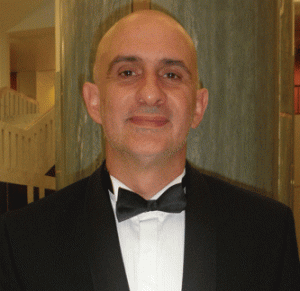 Carl Schiesser is Professor of Chemistry in the School of Chemistry at The University of Melbourne and Director of the Australian Research Council Centre of Excellence for Free Radical Chemistry and Biotechnology. He received his PhD in 1987 from the Australian National University working with Professor Athel Beckwith and was a postdoc with Professor Alwyn Davies at University College London from 1988–1990. Professor Schiesser received a DSc from the University of Adelaide in 2000 and was awarded the prestigious A. J. Birch medal of the Royal Australian Chemical Institute in 2006. Carl is a Fellow of the Royal Australian Chemical Institute and the Royal Society of Chemistry. He has extensive experience in free radical chemistry, ranging from molecular modelling, through to mechanistic and kinetic studies, the development of new chemical methodology, synthesis of bioactive molecules and cultural materials conservation.
Carl Schiesser is Professor of Chemistry in the School of Chemistry at The University of Melbourne and Director of the Australian Research Council Centre of Excellence for Free Radical Chemistry and Biotechnology. He received his PhD in 1987 from the Australian National University working with Professor Athel Beckwith and was a postdoc with Professor Alwyn Davies at University College London from 1988–1990. Professor Schiesser received a DSc from the University of Adelaide in 2000 and was awarded the prestigious A. J. Birch medal of the Royal Australian Chemical Institute in 2006. Carl is a Fellow of the Royal Australian Chemical Institute and the Royal Society of Chemistry. He has extensive experience in free radical chemistry, ranging from molecular modelling, through to mechanistic and kinetic studies, the development of new chemical methodology, synthesis of bioactive molecules and cultural materials conservation.
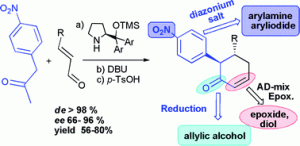











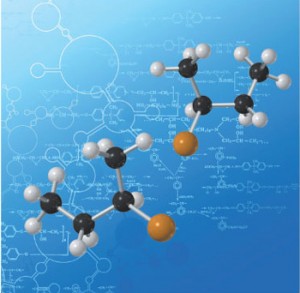


 Oxford
Oxford